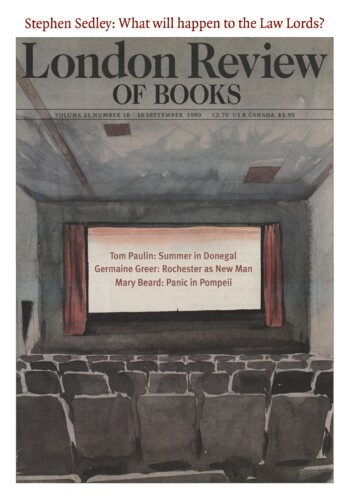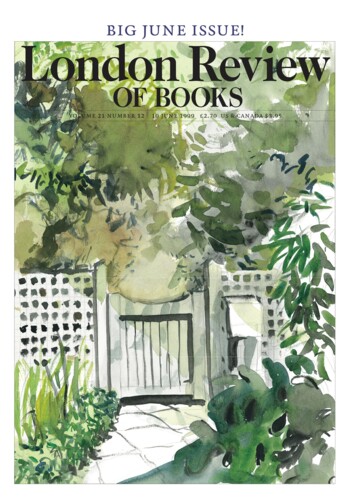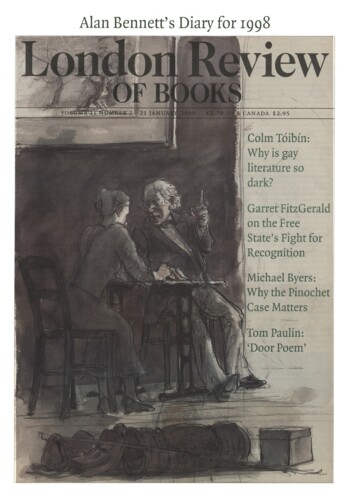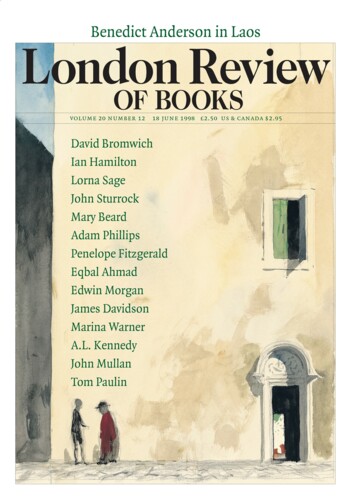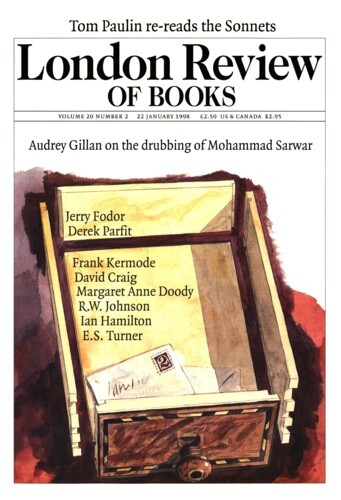Diary: Summer in Donegal
Tom Paulin, 16 September 1999
Something in the cool, sun-stippled hazel grove I don’t understand – a low wall made of dressed stone, large thin flat slabs, no mortar, but packed with small stones to bind them. Then the remains of a lower wall running up against it, making the corner of a rectangle. I pull away moss and earth, and find a stone-paved floor, the hazel bushes growing up through it. I want it to be a fort or an ancient lookout, in line with the crannog, the tiny island fort, in the estuary below, but the fact it’s not circular, the way it’s set into the lee of the hill, makes me think it must be an old stone cabin, how old I don’t know, but it would have been inhabited by Gaelic speakers who cut hay on the two hidden meadows further up the hill, or grew potatoes or oats on them.’
